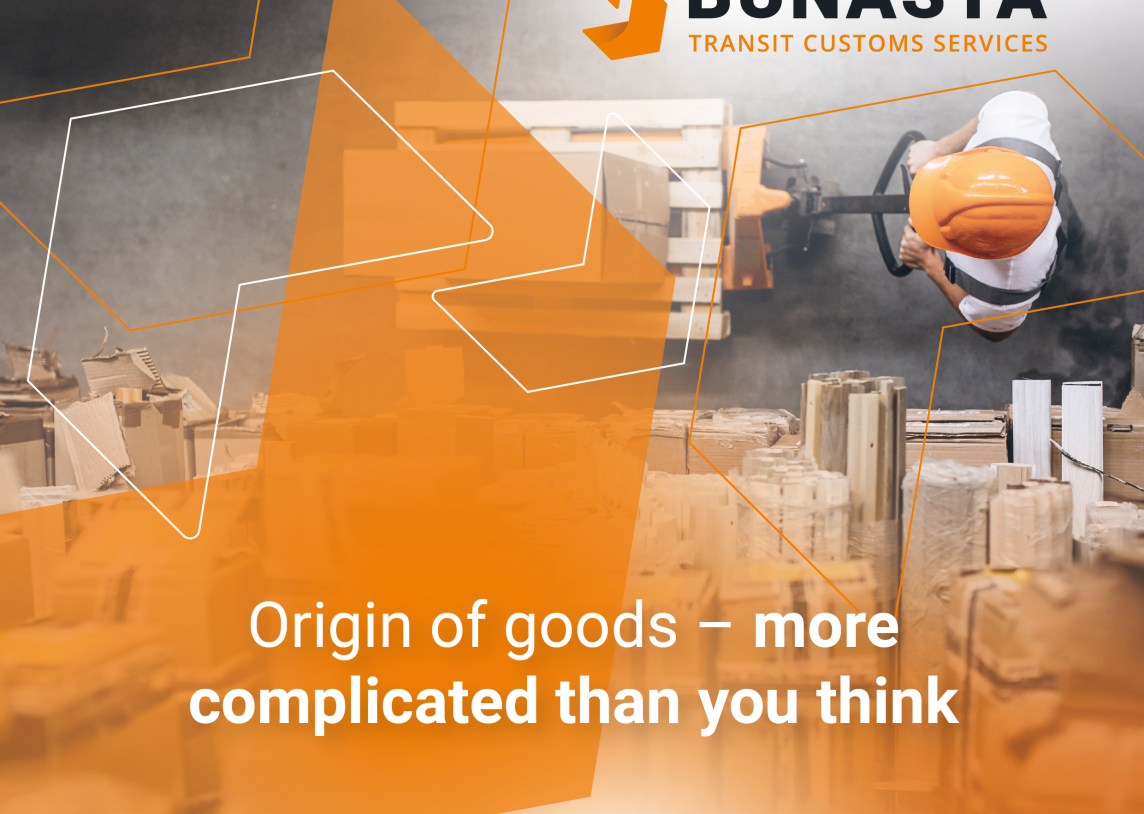Blog
Origin of goods – more complicated than you think
2025 06 11
In the world of international trade, one of the most underestimated yet important aspects is determining the origin of goods.
Many entrepreneurs assume that the origin is simply the country from which the goods were shipped. Unfortunately – it's not that simple.
What does “origin of goods” mean in customs regulations?
In practice, we distinguish two types of origin:
- Non-preferential – used for statistical purposes, labeling, embargoes, or “Made in” markings.
- Preferential – allowing the application of reduced or zero customs duties under free trade agreements (e.g., with South Korea, Canada, the UK, or EFTA countries).
To benefit from preferences, goods must meet specific origin rules – such as being sufficiently processed, containing a required percentage of local components, or changing their tariff classification.
Each trade agreement has different rules – that’s what makes this topic so complex.
Why does it matter?
✔️ Correctly determined origin can reduce import costs (sometimes to zero).
✔️ Errors can lead to extra charges, delivery delays, or penalties.
✔️ Certificates of origin and invoice declarations must comply with legal requirements – otherwise, they’re invalid.
✔️ In case of customs control, the importer is responsible for documentation and any consequences.
When should you care?
- Are you importing goods from Asia and distributing them in Europe?
- Are your products composed of elements from multiple countries?
- Are you unsure whether you meet FTA origin rules?
- Do you need to issue an EUR.1 certificate or an invoice declaration?
If you answered “yes” to any of these – this topic is relevant to your company.
!!! Case study: how origin reduced customs duty to zero
One client of Bunasta customs agency – a European trading company in the electronics sector – imported computer accessories from South Korea.
At first glance, it was a standard import. However, our experts discovered that the goods met the origin rules of the EU–South Korea FTA. This allowed for a zero customs duty.
Key conditions:
✔️Proper preparation of the exporter's invoice declaration
✔️Full documentation confirming origin
✔️Indicating the preference code in the customs declaration
Results?
✅ The client saved thousands of euros on one shipment
✅ Customs clearance became simpler and faster
✅ They gained legal certainty and peace of mind
Without this knowledge, the company would’ve paid full duty – unknowingly giving up their rights.
Summary:
- Determining origin is not a formality – it’s real savings or risks.
- It requires knowledge, experience, and understanding of legal details.
- Don’t leave it to chance – consult experts.
Bunasta customs agency helps companies analyze origin rules, issue proper documentation, and carry out safe and compliant customs clearance.
Questions? Want to make sure your documents are in order? Contact us.
From experience, we know it’s better to prevent than… explain to customs.
